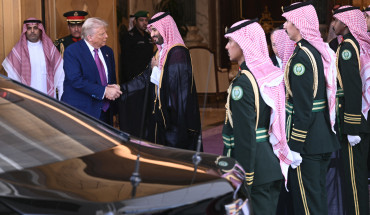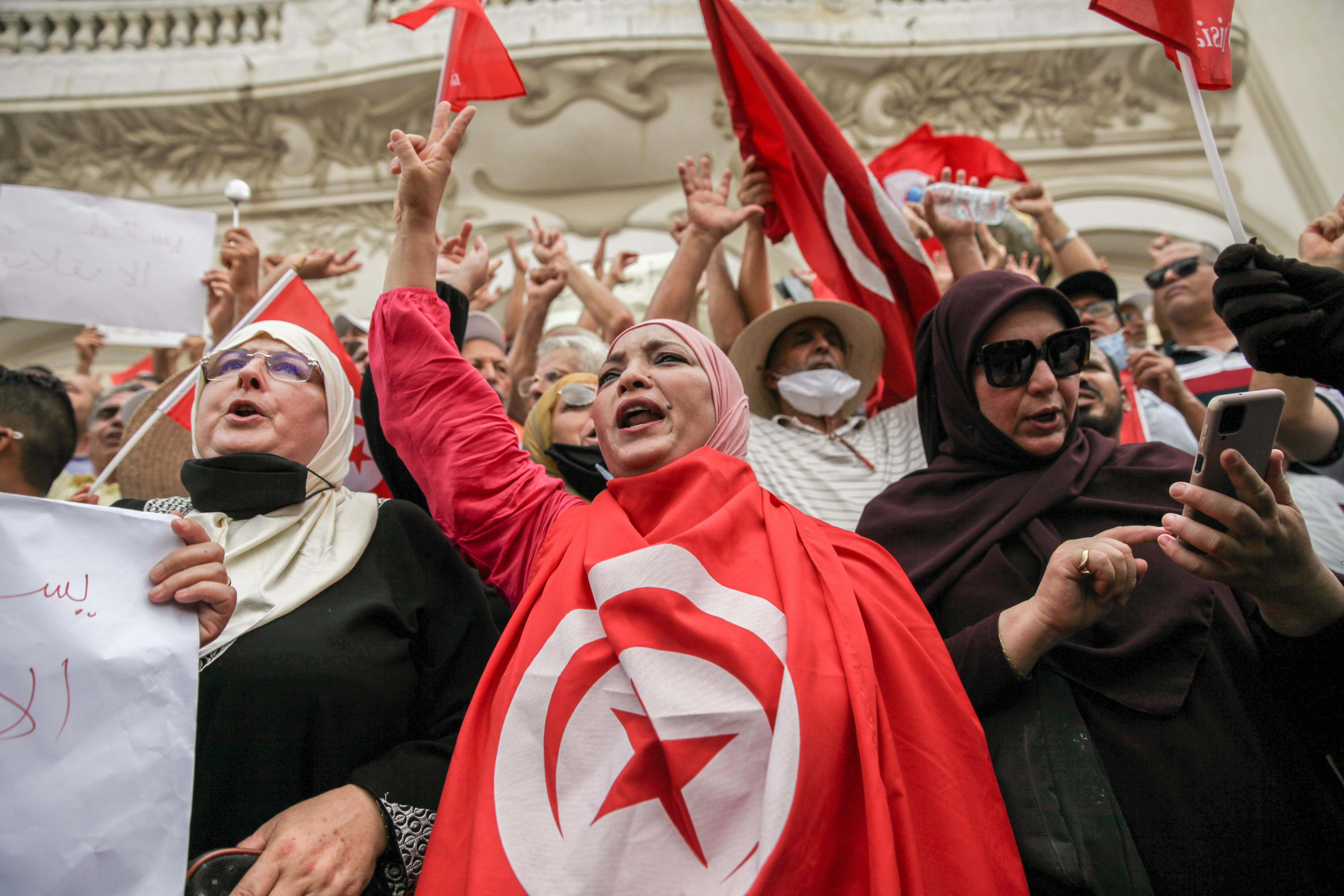The Middle East Institute (MEI) is pleased to welcome James Zogby, president of the Arab American Institute and founder of Zogby Research Services (ZRS), to discuss the findings of a recent poll on Tunisian attitudes and optimism for the future. Zogby Research Services conducted a survey of 1,551 Tunisians between August 15 and September 5, 2021.
Dr. Zogby will be joined by Elizia Volkmann, a British freelance journalist based in Tunis, and Dr. Eya Jrad, Researcher and Assistant Professor of Security Studies at the Ministry of Higher Education and Scientific Research Tunisia. During the discussion, Dr. Zogby will present the poll's findings and discuss how opinions have evolved over the past decade since Zogby Research Services (ZRS) first polled Tunisians in 2011. The panel will also explore Tunisians’ priorities for their country, the current political crisis, challenges of governance, and the way forward.
Biographies:
Eya Jrad
Dr. Eya Jrad is a Researcher and an Assistant Professor of Security Studies. She has also taught courses on Human Rights Law, Special Crimes, and Comparative Systems. Eya holds a Ph.D. in International Relations Law from the Faculty of Legal, Political, and Social Sciences of the University of Carthage. Jrad has over 10 years of experience specializing in Border Security, P/CVE, Institutional Governance and Reform, Social and State Resilience and the Rule of Law. She has gained practical experience working with national and international actors in Tunisia and the broader MENA region (Libya, Morocco, Egypt, Yemen, Kuwait.)
Elizia Volkmann
Elizia Volkmann is a British freelance journalist based in Tunis for the past five years covering Tunisian politics, social and economic issues as well as the wider Maghreb and Euro-med region. She has covered Tunisian politics extensively reporting on the 2019 elections and analyzing online influence and disinformation around the political campaigns and news within the region.
Her articles have appeared in The Times, The BBC, Al Jazeera English, and Al Monitor. She has made several appearances on air on TV for Al Jazeera, DW, and Euronews as well as radio for Monocle. She is also an active advocate for press freedom and the right to free speech and human rights. She has presented at conferences such as Rightscon, the annual conference on digital human rights. She is also involved in animal rescue and animal charities.
James Zogby
Dr. James J. Zogby is the founder and president of the Arab American Institute (AAI), a Washington, D.C.-based organization that serves as the political and policy research arm of the Arab American community. He is also managing director of Zogby Research Services, which specializes in groundbreaking public opinion polling across the Arab world. Zogby is a lecturer and scholar in Middle Eastern affairs and a visiting professor of Social Research and Public Polling at New York University in Abu Dhabi. A lecturer and scholar on Middle East issues, U.S.-Arab relations, and the history of the Arab American community, Dr. Zogby appears frequently on television and radio. Zogby is the author of Arab Voices (Palgrave Macmillan, October 2010), among other books and publications. Dr. Zogby has testified before U.S. House and Senate committees and has addressed the United Nations and other international forums. He is a member of the Council on Foreign Relations.
Intissar Fakir, moderator
Intissar Fakir is a senior fellow and director of MEI’s North Africa and Sahel program. She is an expert on North Africa, the Sahel, and key regional thematic issues including governance, social change, migration, and security. She has written extensively on North Africa’s evolving politics including Islamist electoral politics in post-2011 Morocco and Tunisia, the Western Sahara issue, foreign policy priorities in Morocco and the broader region, and the impact of COVID-19 on regional political stability. Her research has also included political transitions, mobilization trends, energy, and social change in Morocco, Mauritania, Algeria, and Tunisia.
Photo by Chedly Ben Ibrahim/NurPhoto via Getty Images












